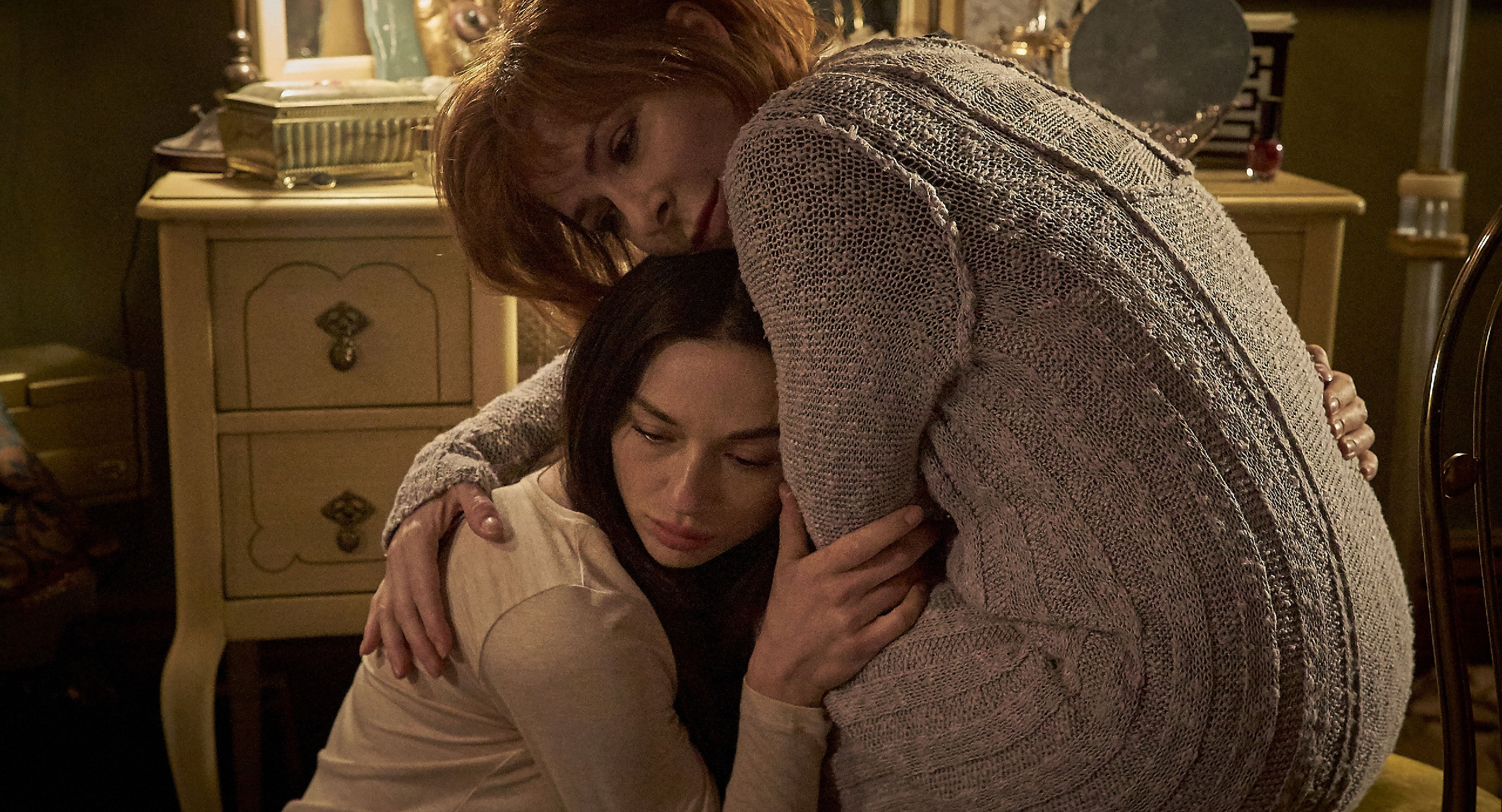Ghostland – Film Review
Published October 11, 2023

Pascal Laugier‘s Ghostland is a chilling foray into the world of psychological horror, where the line between reality and nightmare blurs into a disconcerting tapestry of fear. This film, while undeniably gripping and visually striking, suffers from a lack of narrative coherence and a tendency to rely heavily on shock value, leaving the audience in a state of bewildered fascination.
The film’s narrative trajectory takes an unexpected turn early on, as we are introduced to a mother and her two daughters, Beth and Vera, who move into a secluded, old house left to them by a deceased relative. The stage is set for a classic haunted house tale, but Ghostland quickly shatters these expectations, plunging the characters and the viewers into a nightmarish world of brutality and psychological trauma.
One of the film’s notable strengths lies in its ability to create an atmosphere of unrelenting tension. From the moment the family sets foot in the eerie, dilapidated mansion, a sense of foreboding hangs thick in the air. The haunting cinematography and eerie sound design amplify this sense of dread, immersing the audience in an unsettling ambiance that keeps them on the edge of their seats.
Laugier’s direction deserves commendation for his skillful use of suspense and gore. Scenes of visceral violence are juxtaposed with moments of quiet, nerve-wracking anticipation, creating a rollercoaster of emotions that, at times, is genuinely terrifying. The film’s ability to elicit visceral reactions is a testament to its effective use of horror tropes and shock tactics.
However, where Ghostland falters is in its narrative structure and character development. The film oscillates between the past and the present, blurring the lines between reality and hallucination. While this technique can be potent when executed skillfully, in this case, it often leaves the audience confused and struggling to piece together the fractured storyline. The jarring shifts in time and perspective disrupt the film’s flow, making it challenging to fully invest in the characters’ experiences.
Additionally, the characters themselves lack depth, reducing their emotional stakes and making it difficult for the audience to empathize with their plight. Beth (Crystal Reed) and Vera (Anastasia Phillips), despite their harrowing circumstances, remain underdeveloped, serving as mere vessels for the horrors inflicted upon them. A more nuanced exploration of their personalities and motivations could have elevated the film, providing a stronger emotional core amidst the chaos.
Furthermore, Ghostland relies heavily on shocking and gruesome imagery, occasionally sacrificing substance for spectacle. While the visceral scenes undoubtedly leave a lasting impression, they often feel gratuitous, overshadowing the potential for a more profound exploration of the characters’ psychological states. The film’s heavy reliance on shock value risks desensitizing the audience, diminishing the impact of its more disturbing moments.
Ghostland is a visually arresting and genuinely terrifying film that excels in creating an atmosphere of palpable fear. Its ability to elicit visceral reactions is a testament to the director’s mastery of horror aesthetics. However, the film’s convoluted narrative structure and underdeveloped characters prevent it from reaching its full potential. While it offers moments of intense horror and suspense, it falls short of delivering a cohesive and emotionally resonant experience. For viewers who appreciate intense, graphic horror and can overlook a disjointed narrative, Ghostland may provide a satisfying, albeit unsettling, cinematic experience.
